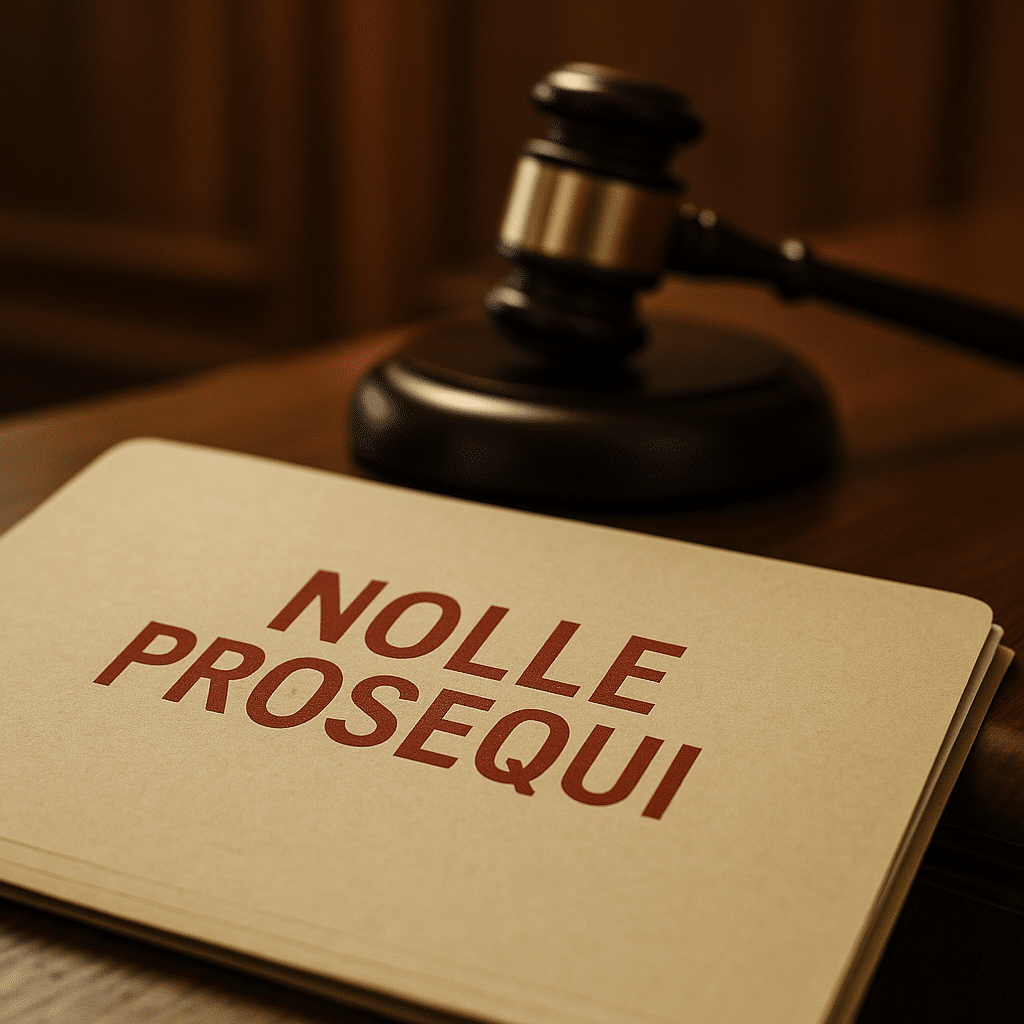
In Maryland’s criminal justice system, the term nolle prosequi—often shortened to nol pros—can play a pivotal role in how a case unfolds. It’s a legal declaration by a prosecutor that they are no longer pursuing criminal charges against a defendant. But while it may sound like good news, it doesn’t always mean the case is over for good. This article breaks down exactly what nolle prosequi means, why prosecutors use it, and what it means for defendants in Maryland.
What Is Nolle Prosequi?
Nolle prosequi is a Latin term meaning “to be unwilling to prosecute.” In criminal law, it refers to the prosecutor’s decision to drop one or more charges in a case. In Maryland, this decision can be made at any point before a verdict is rendered, whether during pretrial proceedings or in the middle of a trial.
Importantly, this is a prosecutorial act, not a ruling by the judge. When a prosecutor enters a nolle prosequi, the case against the defendant is essentially put on pause or withdrawn. However, unlike an acquittal, it does not prevent the state from refiling charges later, as long as the statute of limitations has not expired.
Why Would a Prosecutor Enter a Nolle Prosequi?
There are several common reasons a Maryland prosecutor might choose to enter a nolle prosequi:
- Insufficient evidence: If the state cannot prove its case beyond a reasonable doubt, dropping the charges avoids wasting court resources.
- Uncooperative or unavailable witnesses: A key witness refusing to testify or being unreachable can lead to a case collapsing.
- Legal issues with evidence: Evidence obtained unlawfully—such as in violation of the Fourth Amendment—can be suppressed, weakening the case.
- Plea negotiations: Charges may be dropped as part of a broader plea deal involving other charges or co-defendants.
- Interests of justice: Sometimes, prosecutors conclude that pursuing the case isn’t proportionate to the alleged conduct.
Each of these reasons reflects prosecutorial discretion, a core component of the criminal justice system.
Is Nolle Prosequi the Same as a Dismissal or Acquittal?
No. A nolle prosequi is distinct from both a dismissal and an acquittal:
- A dismissal is typically a judge’s decision, often based on a motion filed by the defense. It may or may not prevent refiling.
- An acquittal is a verdict of “not guilty” rendered by a judge or jury and carries double jeopardy protections, meaning the defendant cannot be retried for the same offense.
- A nolle prosequi, in contrast, leaves the door open for prosecutors to bring the charges again later.
This distinction is crucial for defendants seeking closure or preparing for future legal uncertainty.
What Happens to the Defendant?
When a case is nol prossed, the charges are removed from the current docket, and the defendant is released from the immediate burden of prosecution. However, the case is not expunged automatically, and it may still appear on a background check.
Defendants should consider taking additional steps, such as:
- Consulting with an attorney about filing for expungement, if eligible.
- Reviewing any collateral consequences, such as potential impact on employment, licensure, or housing.
Can the Charges Be Refiled?
Yes. A prosecutor can refile the same charges at a later date, provided the statute of limitations for the offense has not expired. This can occur if:
- New evidence becomes available.
- Witnesses who were once unavailable are now ready to testify.
- The prosecutor reevaluates the case under a new administration or policy.
This means that while nolle prosequi offers immediate relief, it doesn’t guarantee long-term resolution.
How Does Nolle Prosequi Affect Non-Citizens?
For defendants who are not U.S. citizens, a nolle prosequi can still carry serious immigration consequences. Even if criminal charges are dropped, U.S. Immigration and Customs Enforcement (ICE) may pursue removal proceedings based on the underlying conduct or arrest.
Non-citizen defendants should seek guidance from both criminal defense and immigration attorneys to fully understand their risks.
Should You Worry About Double Jeopardy?
No. A nolle prosequi does not trigger double jeopardy protections because there was no final verdict. Double jeopardy only applies when a defendant has been acquitted or convicted, not when charges are dropped voluntarily by the state.
Need Legal Help? Talk to Southern Maryland Criminal Defense
If your case has been marked nolle prosequi, you may feel a mix of relief and confusion. Are you free to move on? Could the charges return? What about expungement?
At Southern Maryland Criminal Defense, we’ve helped hundreds of clients across Prince George’s, Charles, St. Mary’s, and Calvert Counties understand their legal options and move forward. Whether you’re facing a felony or misdemeanor, our team is here to provide clear advice and aggressive defense.
📞 Call us today or visit somdcriminaldefense.com to schedule your free consultation.
